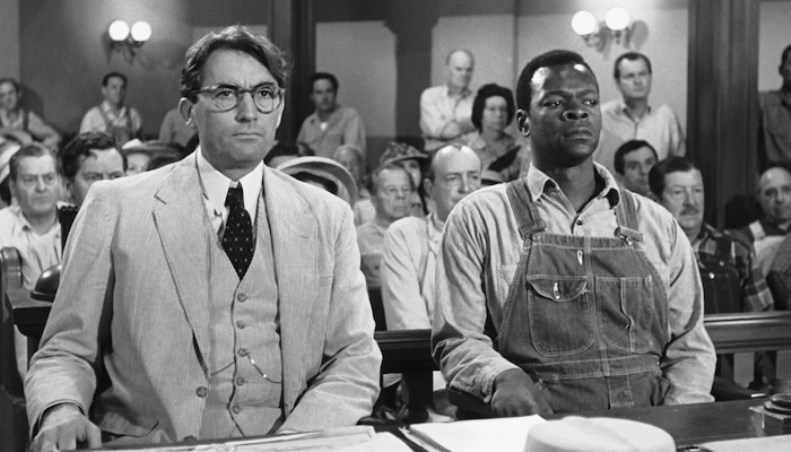Dear Editor,
Several of my friends say that news reports claim that Harper Lee’s new book portrays moral hero Atticus Finch as a racist. Someone told me that if you see it on ItsEthicsStupid.com, it is so. Please tell me the truth, is Atticus Finch a racist?
Signed,
Virginia Every-Reader

Virginia,
Your friends are wrong. Although reporters claim that the character in Harper Lee’s new book is a racist, the real truth is more complicated.
The new book is, in fact, an earlier draft of her original novel. Over two years, with the help and guidance of her editor, that earlier work was transformed into the book you and I, and many others know to be the truth. The Atticus Finch in that final work is a father, lawyer and man of character, who is a role model of respect, fairness, compassion and integrity to his children, Scout and Jem.
Your friends, Virginia, have been afflicted by the cynicism of a cynical age where motives are questioned and dark secrets lie beneath every surface. They believe that people who have a voice in media are the only true voice, so whatever those people say must be true.
The Atticus Finch of the book you and I know, is a man who looks beyond the letter of the law to what the law endeavors to represent – justice for all, despite race, color or creed.
While Atticus can be tough both in and outside the courtroom, he does so in a respectful way, sometimes demonstrating an uncommon degree of self-restraint. You saw that restraint when Bob Ewell spat in his face. Although justifiably angry, Atticus never raised his hand or his voice against Mr. Ewell. This was not an act of weakness, but rather an act of moral strength. It’s because Atticus was able to look from Mr. Ewell’s perspective, to “climb into his skin and walk around in it,” that he accepted the limitations of Mr. Ewell brought about by Mr. Ewell’s own prejudice.
In the final version of the book that became “To Kill a Mockingbird,” Atticus explains to his daughter, Scout, why he is defending Tom Robinson – a black man whom many believe is guilty of beating and raping Mayella Ewell, despite the evidence.
“They’re certainly entitled to think that,” Atticus tells his young daughter, “and they’re entitled to full respect for their opinions…but before I can live with other folks I’ve got to live with myself. The one thing that doesn’t abide by majority rule is a person’s conscience.”
With those words, Atticus exemplifies our highest aspirations. He is a man of reason and integrity. While he knows that he will probably lose his legal fight, it is the moral fight that ultimately matters.
After the jury returns a guilty verdict against Robinson, Jem asks Atticus how they could reach such a verdict given his defense. Atticus explains to his son about the prejudice that exists in some people’s hearts. “…you saw something come between them and reason… There’s something in our world that makes men lose their heads – they couldn’t be fair if they tried.”
Are those the words of a racist?
The Atticus Finch from “To Kill a Mockingbird” is the result of much thought, guidance and a lot of rewriting by the author. Harper Lee said that an author “should write about what he knows and write truthfully.” While she says that the book is not autobiographical, the book contains many similarities to her own life. Her father, Amasa Lee was a local attorney in Lee’s hometown of Monroeville, Alabama. Similar to Atticus, Amasa Lee defended two black men accused of murder who were later found guilty and hung.
While it is interesting to read how an earlier work eventually became the classic of moral character that “To Kill a Mockingbird” represents, it’s important to remember that the final book and character that came from that earlier draft likely represents the true intention of the author. And no amount of reports and analysis can change that truth.
Comments









